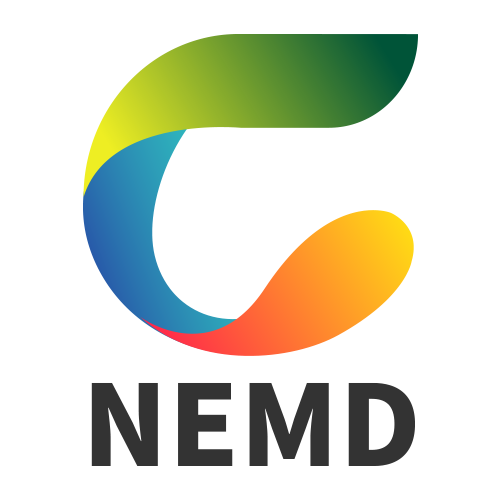
Prof. Zhonglin Wang, Beijing institute of Nanoenergy and Nanosystems, Chinese Academy of Sciences, China
王中林教授,中国科学院北京纳米能源与系统研究所/中国科学院大学纳米科学与技术学院(院士)
Academician Zhonglin Wang is the director of the Beijing Institute of Nanoenergy and Nanosystems of the Chinese Academy of Sciences and the founder and leader of international nanoenergy. His pioneering research has not only promoted the development of nanotechnology, but also brought revolutionary breakthroughs to the fields of global energy science and materials engineering. As the winner of four top international awards, including the 2023 Global Energy Prize, the 2019 Albert Einstein World Award of Science, the 2018 ENI Award (known as the "Nobel Prize in Energy"), and the 2015 Thomson Reuters Citation Laureate, Academician Wang's scientific achievements have been highly recognized by the global academic community. Academician Wang is the founder of the field of nanoenergy research, pioneering the self-driving system based on nanogenerators and the grand field of blue energy, providing a new direction for the development of high-entropy energy systems. He invented the friction nanogenerator (TENG), a technology that can harvest energy from mechanical energy in the environment (such as human motion, vibration, and wind energy), providing sustainable energy solutions for self-driving sensors, artificial intelligence, wearable electronic devices, and IoT devices. In addition, he pioneered the third-generation semiconductor research field of piezoelectric electronics and piezoelectric optoelectronics effects, established the disciplines of piezoelectric electronics, piezoelectric optoelectronics and triboelectronics, and discovered six new physical effects. These discoveries not only deepened human understanding of materials science and energy conversion mechanisms, but also laid the foundation for the next generation of sensors, optoelectronic devices and human-computer interaction technologies. Academician Wang's academic influence is global. According to the comprehensive evaluation report of Stanford University and Elsevier, he is the top two scientists in the world in terms of lifetime influence among top scientists in all disciplines, and ranked first in single-year influence for four consecutive years from 2019 to 2022. He has published 110 high-level papers in Nature, Science and its sub-journals, with a total of more than 480,000 citations on Google Scholar and an h-index of 330. In addition, he has more than 200 invention patents, and has personally initiated and founded several companies to transform scientific research results into practical applications and promote the industrialization of nano energy technology. Academician Wang's outstanding contributions have also been widely recognized by the international academic community. He is a foreign member of the Chinese Academy of Sciences, the National Academy of Inventors of the United States, the Academy of Europe, the European Academy of Engineering, the Canadian Academy of Engineering, and the Korean Academy of Science and Technology. He is the founding editor-in-chief of Nano Energy, a well-known international journal in the field of nano energy, providing an important academic platform for the development of global nano energy research.
Title:Triboelectric nanogenerators (TENG) for sustainable energy and AI
Abstract:Triboelectric nanogenerator (TENG) was invented by Wang’s group in 2012, which is based on the coupling of triboelectrification and electrostatic induction effects for converting mechanical energy into electric power. TENG is playing a vitally important role in the distributed energy and self-powered systems, with applications in internet of things, AL, environmental/infrastructural monitoring, medical science, environmental science, and security. TENG is most effective for utilization of high-entropy energy, which is the random, low-density, low-grade mechanical energy widely-distributed in our living environment and in nature. There are now over 16,000 scientists distributed in 90 countries and regions around the globe who have published papers on TENG. This presentation will first focus on the advances in fundamental science made due to the discovery of TENG. Then we will focus on the potential industrial impacts that have been made by TENG. We will show how this new field will benefit to the sustainable development of humankinds.
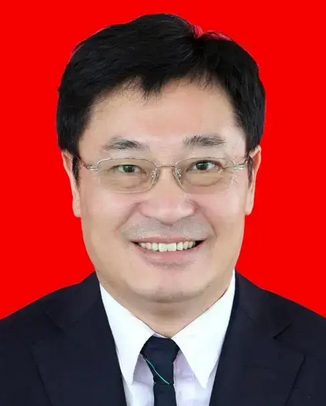
Prof. Lixian Sun,Guilin University Of Electronic Technology,China
孙立贤教授,桂林电子科技大学
Doctoral supervisor, director of Guangxi Key Laboratory, director of Materials Science and Engineering Discipline of Guilin University of Electronic Technology, and former dean. Fellow of the Royal Society of Chemistry, Humboldt Scholar of Germany, Foreign Member of the Russian Academy of Natural Sciences, Foreign Member of the European Academy of Sciences, and NEDO Fellow of Japan. Expert enjoying special allowance, National Outstanding Science and Technology Worker, Guangxi's "Most Beautiful Science and Technology Worker", Guangxi Bagui Scholar, Guangxi Outstanding Expert, Guangxi Advanced Worker, Guangxi Model Teacher. Expert of the National Natural Science Foundation of China, expert of the Ministry of Science and Technology's key projects, and co-director of the Sino-German Joint Laboratory. Selected as Elsevier's Chinese Highly Cited Scholars and the World's Top 2% Top Scientists Lifetime Influence List. Deputy Editor-in-Chief of the International Journal "Journal of Thermal Analysis & Calorimetry", Deputy Director of the Expert Committee of the China Energy Society, etc. Won 11 provincial and ministerial awards including the First Prize of Guangxi Natural Science.
Title:Energy Storage & Sensor Materials and Databases
Abstract:Hydrogen is regarded as one of the most promising alternatives to the energy crisis due to its high heating value, wide availability, and environmental compatibility. The primary technical components of the hydrogen energy system cover the production, supply, storage, conversion, and employment of hydrogen, among which the storage, conversion and safety of hydrogen are consistently the keys to the effective utilization of hydrogen energy. Studies of economic, highly efficient, and safe hydrogen storage materials are of great importance in fuel cell-based vehicles. On the other hand, the application of phase change materials (PCMs) for solar thermal-energy storage has received considerable attention in recent years due to their high storage density.
In recent years, our research effort has been focused in developing hydrogen storage and PCMs based on micro/nano-technology, etc. The promising nanomaterials for hydrogen storage materials such as MHx: M= Mg, La, Ni, etc., alanate, borohydride, and MOFs were conducted in our lab. In addition, hydrogen sensors were also studied. Furthermore, several composite PCMs with good performance have been synthesized through in-situ assembly, and their applications in thermal regulation of gypsum boards are presented.
In addition, the data-driven research paradigm-integrated high-throughput calculations, database, and machine learning is appealing to accelerate new material development. A hydrogen-storage materials database was established and hydrogen property predictions are carried out by using machine-learning methods.
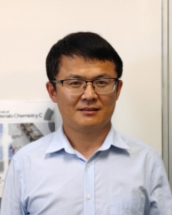
Prof. Guohua Jia, Curtin University, Australia
夹国华教授,澳大利亚科廷大学
Prof. Guohua Jia is a tenured associate professor at Curtin University, Australia, a Fellow of the Royal Australian Chemical Society (FRACI), and a recipient of the Australian Research Council Outstanding Young Scholar Fund (ARC Future Fellow) and the Excellent Young Scholar Fund (ARC DECRA Fellow). He is mainly engaged in the chemical synthesis, growth mechanism, catalysis and display application research of semiconductor quantum dots. He has published more than 160 academic papers in journals such as Nature, Nature Materials, Chemical Reviews, Chemical Society Reviews, Journal of the American Chemical Society, Advanced Materials, etc. He has presided over more than ten projects such as the Australian Foundation for Natural Resources, and won the Royal Australian Chemical Society Materials Chemistry Award and the Australian Academy of Sciences Russell Award. As the chairman of the conference, he organized 7 important international conferences such as the First Australian Materials Chemistry Conference and the ACS Spring (Autumn) Seminar on Quantum Dots. He is a member of the Australian Research Council Expert Group, President of the Royal Australian Materials Chemistry Society, President of the Western Australian Chinese Scientists Association, and a member of the Academic Committee of Curtin University. He is also the deputy editor-in-chief of Materials & Design, Materials Today Chemistry, and Journal of Information Display, and an international editorial board member of Nanoscale, Nanoscale Advances, Chinese Journal of Structural Chemistry, etc.
Title:Anisotropic Semiconductor Nanocrystal Quantum Dots: From Syntheses to Properties and Applications
Abstract:各向异性胶体半导体量子点纳米晶具有与尺寸、形貌等相关的光学和电子学性质,在光电子器件、催化、能源存储、生物医学等领域都有广泛的应用。本报告将围绕“半导体纳米晶结构-功能”主题,介绍近年来各向异性半导体纳米晶(特别是无镉体系)的可控化学合成,自组装机理,以及在催化、激光、刑侦等领域的应用。
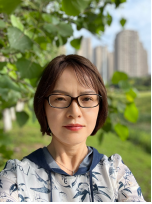
Prof. Chenguo Hu,Chongqing University,China
胡陈果教授,重庆大学
Prof. Hu Chenguo, second-level professor, deputy editor-in-chief of Nano Energy and Research, editorial board member of Nano-Micro Letters, Nano Materials Science, and Nano Trends. She received his Ph.D. from Chongqing University and visited Georgia Institute of Technology in the United States for one year. She is mainly engaged in research on surface interface physics and related functional device design and application, especially in friction nanogenerators and self-driven sensors. She has published more than 340 SCI papers, including 12 in Science, Nature and Cell sub-journals, cited more than 26,000 times by SCI, with an H-index of 85. She presided over 6 general and key projects of the National Natural Science Foundation of China, 4 provincial and ministerial funds, and was the main researcher of 1 project of the Ministry of Science and Technology and 1 863 sub-project. He applied for 42 invention patents, obtained 35 patents, and won 2 first prizes and 2 second prizes in provincial and ministerial natural sciences. She won the "Global Highly Cited Scientist" of Clarivate Analytics for 3 consecutive years from 2022 to 2024.
Title:Regulation of TENG output performance and energy utilization efficiency
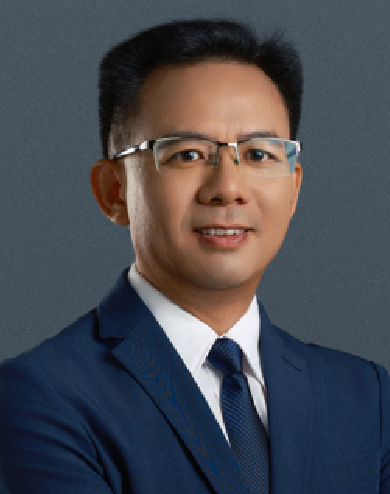
Prof. Daibin Kuang, Sun Yat-sen University, China
匡代彬教授,中山大学
Daibin Kuang is a professor at the School of Chemistry, Sun Yat-sen University. He is mainly engaged in the research of optoelectronic energy materials, including solar cells, photocatalysis, photodetection and luminescence. He has received support from projects including the Key R&D Program of the Ministry of Science and Technology, the Key Project of the National Natural Science Foundation of China-Guangdong Joint Fund, and the National Fund General Project. He has published more than 240 papers in domestic and foreign academic journals such as J. Am. Chem. Soc., Angew. Chem., Adv. Mater., Nat. Commun., Sci. Adv., etc., and has been cited more than 28,000 times. He was selected into the list of "Global Highly Cited Scientists" by Clarivate Analytics in 2022 and 2023. He has won the Guangdong Pearl River Scholar Distinguished Professor (2016), the National High-level Talent Special Support Program Science and Technology Innovation Leader (2020), and the Guangdong Provincial Natural Science First Prize (first finisher, 2019).
Title:Design, synthesis and scintillation properties of organic-inorganic halide luminescent glass
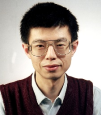
Prof. Qingsheng Zeng, Université du Québec, Canada
曾庆生 教授,魁北克大学(首都分校)
Professor Qingsheng Zeng received his Ph.D. in Electrical Engineering from the University of Ottawa, Canada. He is currently a professor and Ph.D. supervisor at the Université du Québec à Montréal (UQAM) and holds adjunct professor positions at the University of Ottawa, Carleton University, and the National Research Council Canada’s Energy, Materials and Communications center. He previously worked as a senior research engineer at Canada’s National Research Council.
His research focuses on aircraft antenna analysis and design, electromagnetic compatibility and interference, ultra-wideband technology, radio wave propagation, and computational electromagnetics. Professor Zeng has published over 200 SCI and EI indexed papers, authored one academic monograph, and contributed chapters to two other books. His work has been recognized as a significant contribution to the International Telecommunication Union (ITU) and has informed Canadian government reports on ultra-wideband wireless systems.
He is a senior member of IEEE and serves as Chair of the Ottawa Section Joint Chapter for Antennas & Propagation and Microwave Theory & Techniques. He has been involved as an expert reviewer for major Canadian science funding agencies and postdoctoral scholarship programs.
Professor Zeng has received multiple awards, including being named the Most Influential Researcher at Canada’s National Research Council in 2011. He has been appointed as a Distinguished Expert in several prestigious programs in China, such as the Shanxi Province “Hundred Talents Plan” (2015), Guangdong Province Overseas Experts Program (2017, 2019), and the China Association for Science and Technology HaiZhi Program (2023). In 2023, he was also elected as a council member of the Jilin Province Academicians and Experts Federation.
Title :Collaborative Design of Optoelectronic Integrated Antennas for Renewable Energy Systems
Abstract:In this keynote speech, two collaborative designs of optoelectronic integrated antennas for renewable energy systems are presented.
A 4 × 4 slot array antenna for the 5.8GHz frequency band has been proposed, which integrates solar cells and features lightweight and low profile (0.039 λ, where λ is the 5.8GHz wavelength in air). The compact and lightweight structure is realized by using coplanar waveguide feeding and foam substrate. The measured impedance matching frequency range is 5.3 to 6GHz. The gain range within the passband is 13.7 to 16.3dBi. Within the target frequency range of 5.725 to 5.85GHz, the peak gain measured is 14.8dBi, exhibiting unidirectional radiation characteristics. The solar cell covers 72.5% of the total antenna area, improving the photovoltaic power generation capacity.
A folded structure broadband antenna for 2G/3G/4G/5G communication below 6GHz has been proposed. Two solar cells are encapsulated at the top for radiation. In addition to the basic mode, higher-order modes were also introduced to expand the bandwidth, and the relative bandwidth of the solar cell antenna increased from 1.7GHz to 3.85GHz to 77.4%. The folding structure can control the reverse current of high-order modes, thereby achieving stable radiation performance. Adopting a folding structure, a unidirectional radiation mode is achieved throughout the entire passband. The coverage rate of solar cells with antenna aperture is 55%, which has photovoltaic power generation capability. With these excellent characteristics, this broadband solar cell antenna has broad application prospects in future green communication systems.
